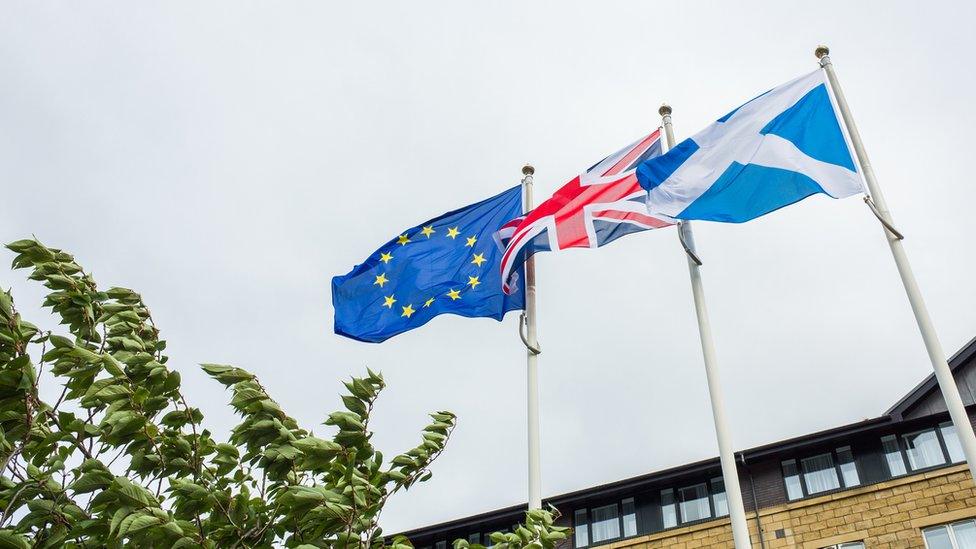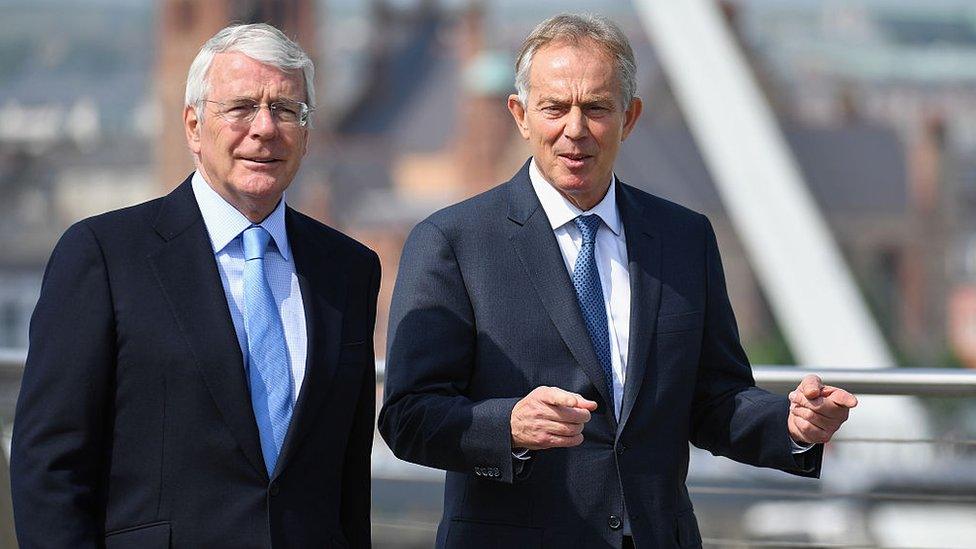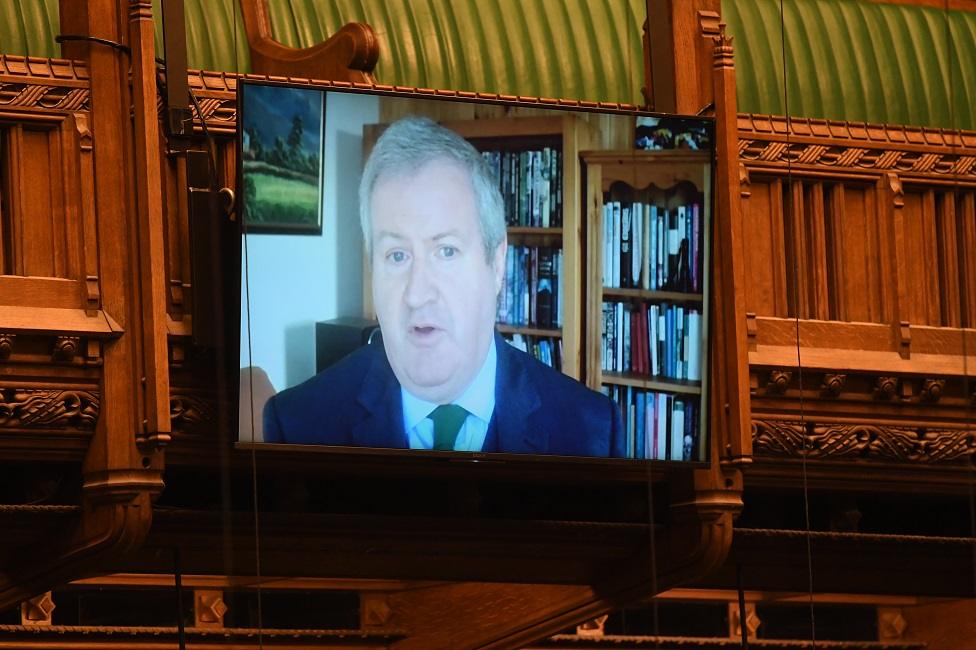How could a no-deal Brexit affect Scotland?
- Published

A no-deal Brexit is not without consequences.
The introduction of tariffs on many imports and exports and the associated border disruption is one obvious impact.
The NHS in Scotland warned this week how that could lead to shortages of medicines and other essential supplies in the early part of 2021.
That's why they are stockpiling, the UK government has secured alternative freight capacity and the Scottish government has activated emergency planning procedures.
A range of other no deal impacts are explored here: What happens if there's no trade deal?
UK ministers tend to play down the prospect of upheaval as "bumps along the road" to British sovereignty. The UK, they insist, will prosper in all circumstances.
It is also possible that some of those bumps could cause lasting damage to an already disunited kingdom.
During the referendum campaign, former prime ministers Tony Blair and John Major teamed up to argue that Brexit could boost support for Scottish independence.

John Major and Tony Blair joined forces to argue against Brexit during the referendum
It will give them no pleasure to note that opinion polls suggest there is now a sustained majority for independence in Scotland.
Analysis by politics professor Sir John Curtice suggests Brexit has helped shift former no voters towards yes.
The current leader of the Scottish Conservative and Unionist party, Douglas Ross has acknowledged this Brexit effect.
There was a time when his predecessor, Ruth Davidson and the then Scottish secretary, David Mundell threatened to resign if Brexit gave Northern Ireland a special relationship with the EU.
They argued that would "undermine the integrity" of the UK.
It may be just as well both have moved on from their previous posts (although Ms Davidson now leads Tory MSPs) as the arrangements to give effect to Northern Ireland's special status were agreed between the UK and EU this week.
When I asked Mr Ross about this on Thursday, he said "everyone accepts" Northern Ireland requires a unique solution and "I don't believe that will enhance the case for Scottish independence".

Ian Blackford raised the issue at Prime Minister's Questions
At Prime Minister's Questions, the SNP's Ian Blackford said Scotland was being "shafted" having voted against Brexit and been refused a differentiated relationship with the EU.
Other senior nationalists see the minimisation of checks on goods crossing between Britain and Northern Ireland as a possible model for Scotland's border with England in the event of independence.
The SNP is adept at identifying political possibility in every twist of the Brexit drama.
The nationalists' critics say they could have used their votes in the Commons to force through a softer Brexit for the whole UK, including continued membership of the customs union.
They also point out that Scottish constitution minister Mike Russell has said it is "inconceivable" the SNP could back any Brexit deal even if others insist the party keeps an open mind.
The SNP's high poll ratings remain resilient to criticism with the next Holyrood elections just five months away.
There are those who hope Brexit turbulence on top of the economic crisis caused by Covid will help persuade Scottish voters of their security within the UK.
However, many unionists think leaving the single market and customs union - especially without a trade agreement - is more likely to compound support for the SNP and their campaign for indyref2.
It remains to be seen what impact Labour's soon to be announced effort to redesign the UK along federal lines could have in this debate, with parts of England now seeking more power too.
The potential consequences of Brexit for the union may be unintended by Boris Johnson and other leave champions.
The magnitude of these consequences suggests they deserve careful consideration this weekend as talks between the UK and EU edge closer to a conclusion.